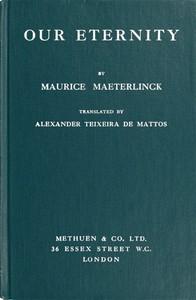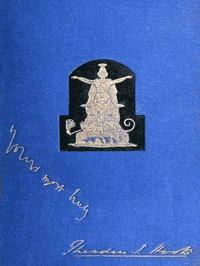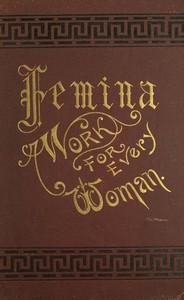Read this ebook for free! No credit card needed, absolutely nothing to pay.
Words: 11968 in 3 pages
This is an ebook sharing website. You can read the uploaded ebooks for free here. No credit cards needed, nothing to pay. If you want to own a digital copy of the ebook, or want to read offline with your favorite ebook-reader, then you can choose to buy and download the ebook.


: Our Eternity by Maeterlinck Maurice Teixeira De Mattos Alexander Translator - Spiritualism; Immortality; Death
Every Man His Own University
Every Man's University Animals and "The Least Things" The Bottom Rung Thoughtfulness Instincts and Individuality
VOLUME 4
NATIONAL EXTENSION UNIVERSITY
OBSERVATION--EVERY MAN HIS OWN UNIVERSITY
EVERY MAN'S UNIVERSITY
Without observation, literature and meditation are shower and sunshine upon unbroken soil. Only those schools and colleges are true schools and colleges which regard it as the chief business of all their teaching to persuade those under their charge to see more perfectly what they are looking at, to find what they should have been unable to observe had it not been for their school instruction. You can't make a good arrow from a pig's tail, and you can seldom get a man worth while out of one who has gone through the early part of his life without having learned to be alert when things are to be seen or heard. John Stuart Blackie says that it is astonishing how much we all go about with our eyes wide open and see nothing, and Doctor Johnson says that some men shall see more while riding ten miles upon the top of an omnibus, than some others shall see in riding over the continent.
A traveler in Athens or Rome, Paris or London, may be shown these cities by a professional guide, and yet gain only a smattering of what these cities hold in store for him, and remember little of what he has seen. Another traveler, unattended by a guide, but observant of everything that comes to his eyes and ears, will carry away stores from his visit to those cities, which shall be of life-long interest and be serviceable to all who shall travel his way. The solitary but observant stranger in a country almost always profits most from his travels. He is compelled to notice boulevards and buildings, parks and people; and every day of his travels is a lesson in observation that accustoms him to remember all he has once seen. The newspaper correspondents of other days had no guide-books or guides, and they were entire strangers in the places they visited. They relied entirely upon themselves to find their way, and to discover everything that was valuable and interesting. They found much that the modern guide either overlooks or disregards, and wrote for the papers at home what would most interest and instruct their readers.
A great foreign correspondent of his day, Henry W. Chambers, remained only six hours at Baalbek, near Damascus; yet he wrote the clearest description that probably ever was written of the magnificent temples at Baalbek--and he wrote these descriptions, too, at Hong-Kong, after many and varied experiences while visiting other places of greater importance. Many archeologists and literary men before him had visited the moat of the great fortress at Baalbek. Still, they had never observed as Chambers observed, and so they missed seeing the arrow-heads and all the other warlike instruments used in those ancient days, which had lain unnoticed among those huge pillars and great foundation-stones.
Millions and millions had seen the lid of a teakettle bobbing up and down over the boiling water before that Scotchman, Watt, observed it while making watches. But he was the first of all those millions whose close observation led him to investigate this force of boiling water in the teakettle. Then he applied this power to the steam-engine, which is still the great propelling force of the world. From the time of the Garden of Eden apples had fallen in the orchards of the world, through all the harvest-days. Of all the billions that had seen apples falling, only Sir Isaac Newton observed the law of gravitation that was involved in their falling.
All the great discoverers began with nearly the same meager powers for observation that the rest of the world has, but early in life came to value above all other mental powers this incalculable power to closely notice; and each made his realm of observation much richer for his discoveries.
Why do the majority of us go through life seeing nothing of the millions of marvelous truths and facts while only a few keep their eyes and ears wide open and every day are busy in piling up what they have observed! The loss of our instincts seems to be the price we pay to-day for the few minor acquisitions we get from school and college; we put out our brains to make room for our learning. The man who assiduously cultivates his powers of observation and thus gains daily from his experiences what helps him to see farther and clearer everything in life that is worth seeing, has given himself a discipline that is much more important than the discipline of all the schools and the colleges without it. The greatest text-books of the greatest universities are only the records of the observations of some close observer whose better powers of seeing things had been acquired mainly while he was taking his courses in that university under his hat.
Free books android app tbrJar TBR JAR Read Free books online gutenberg
More posts by @FreeBooks

: Aventures de Baron de Münchausen by B Rger Gottfried August Raspe Rudolf Erich Dor Gustave Illustrator Gautier Th Ophile Translator - Humorous stories; Voyages and travels Fiction; Voyages Imaginary Fiction; Tall tales FR Humour


: Kylätohtori by Svetl Karolina Westerlund Lyyli Translator - Czech fiction Translations into Finnish






